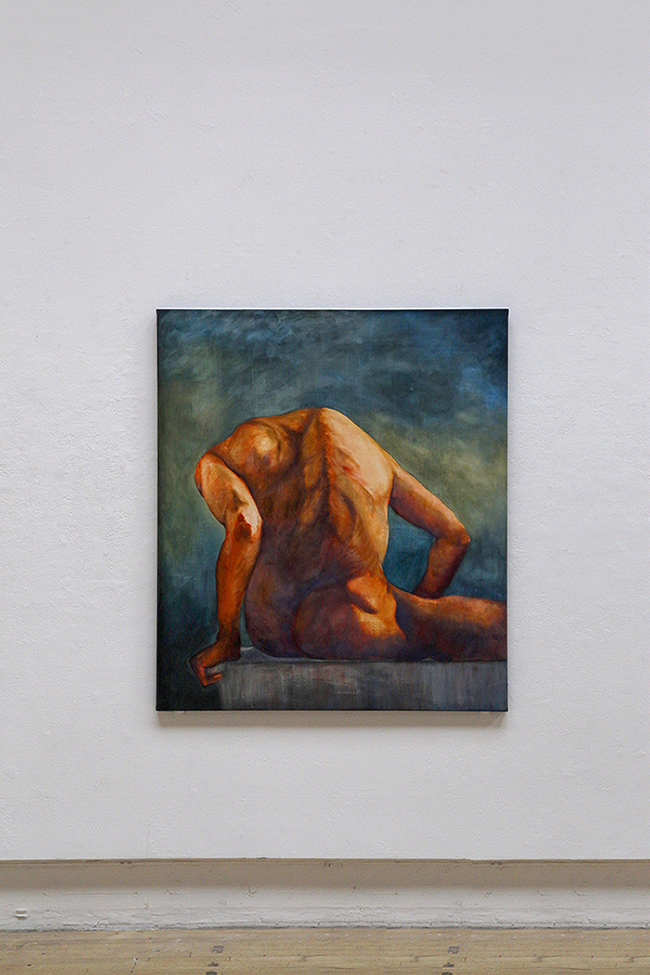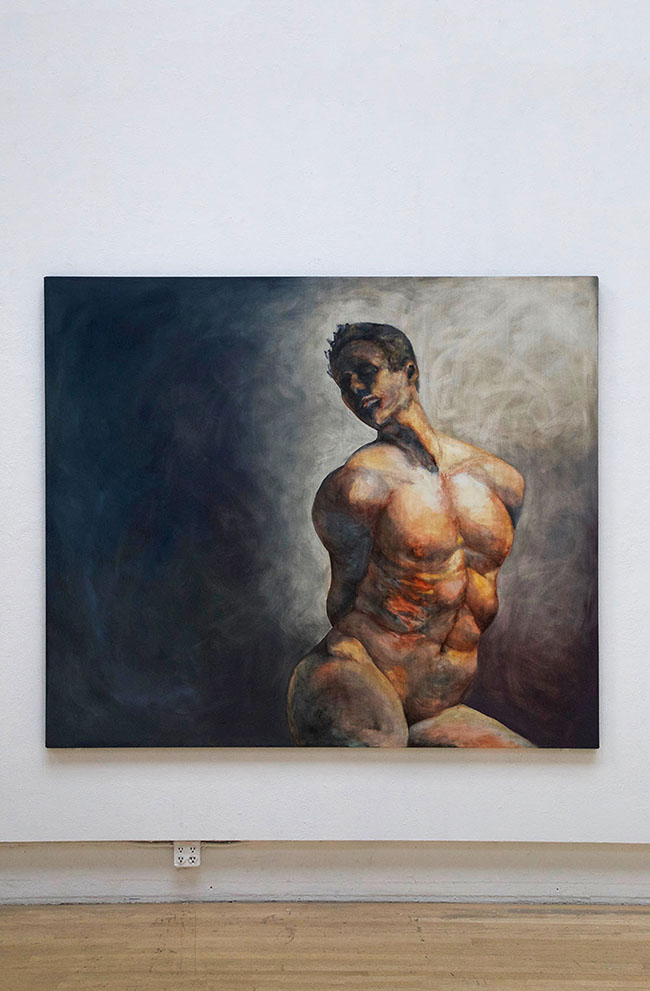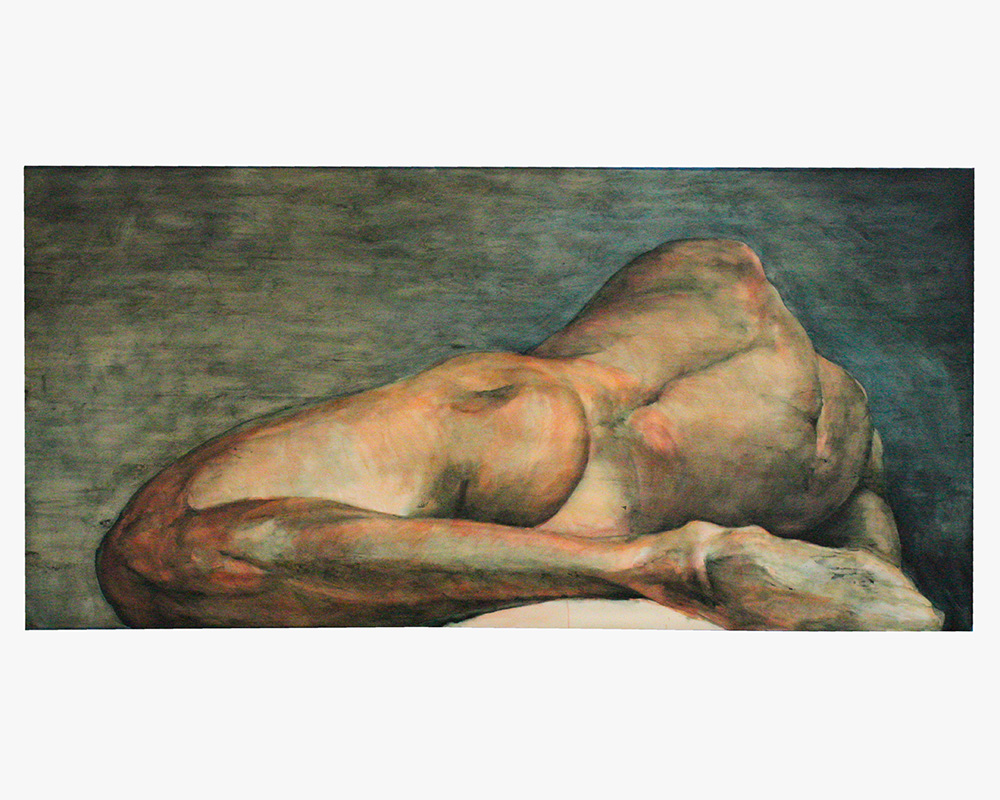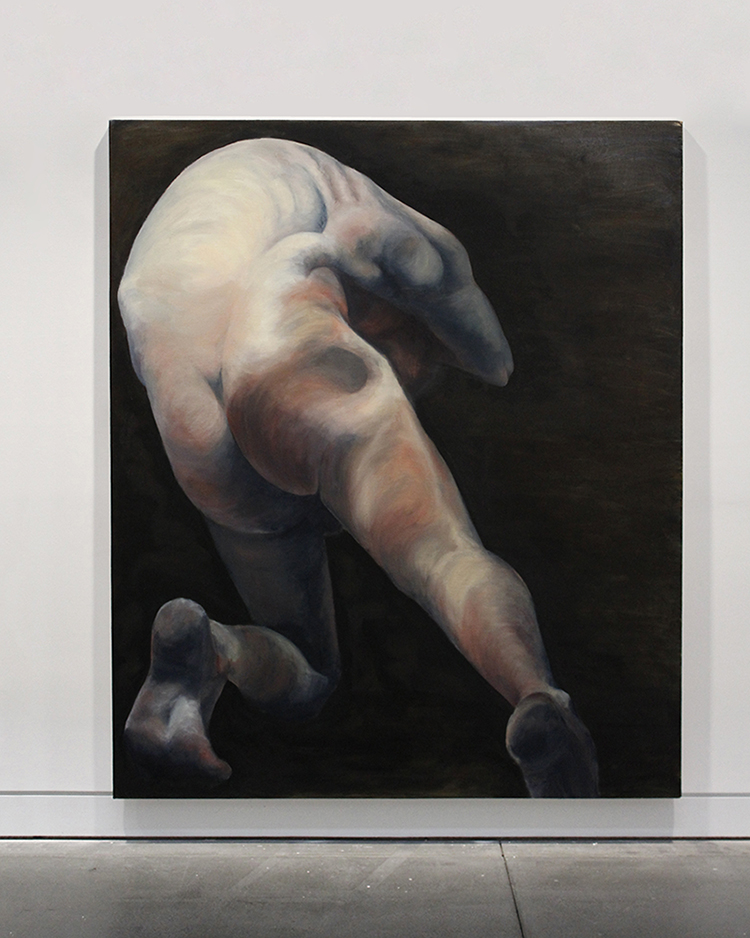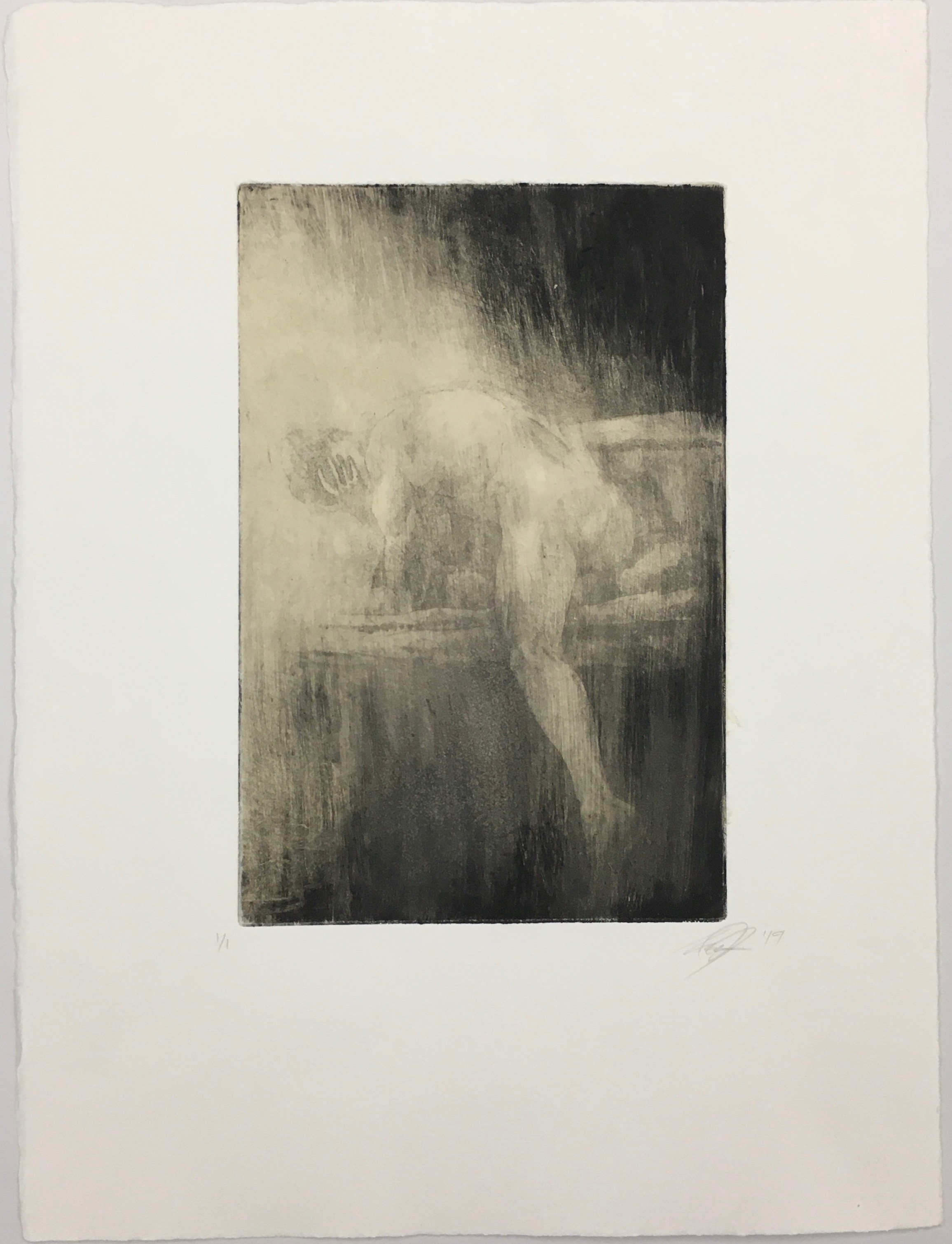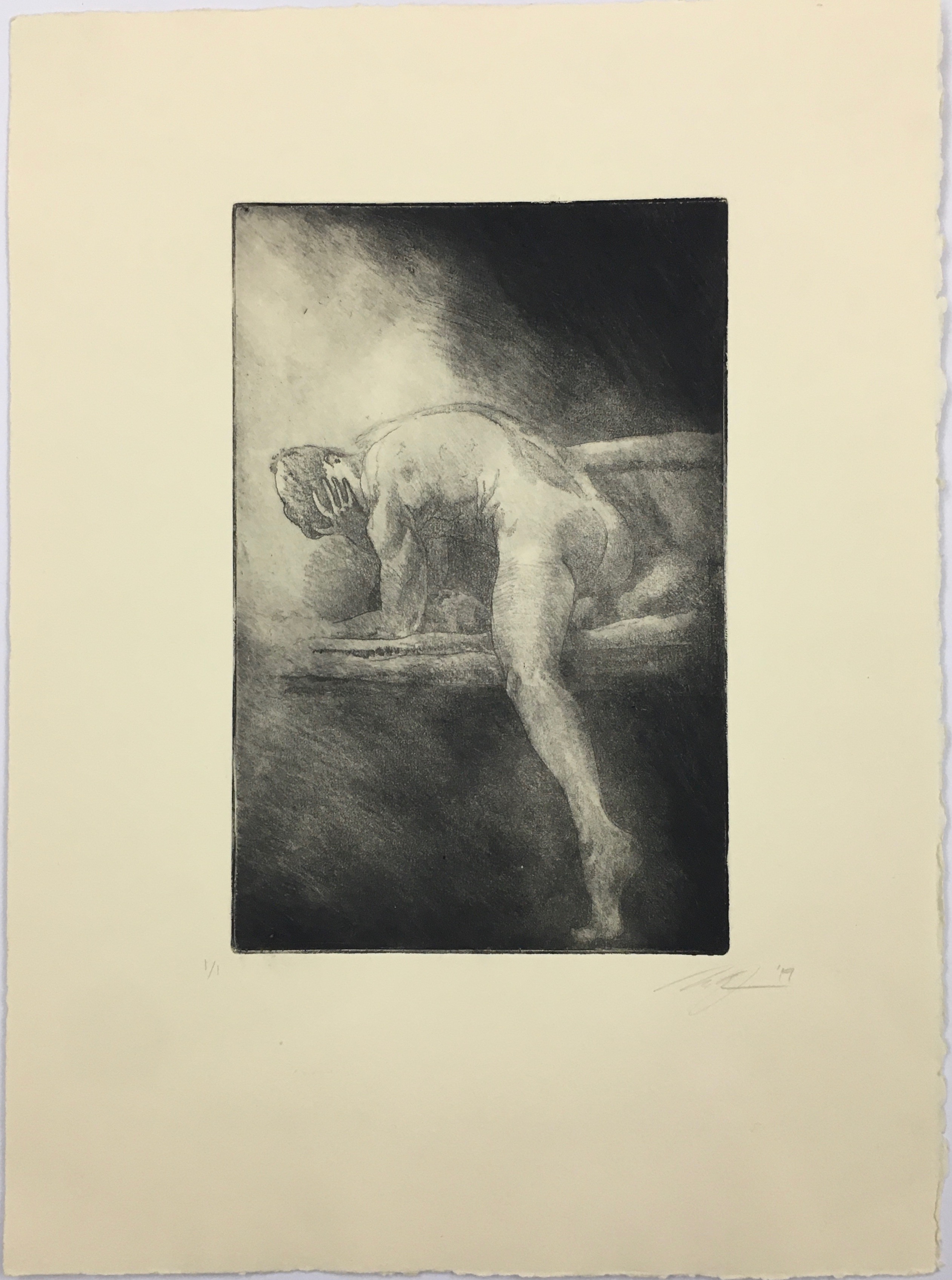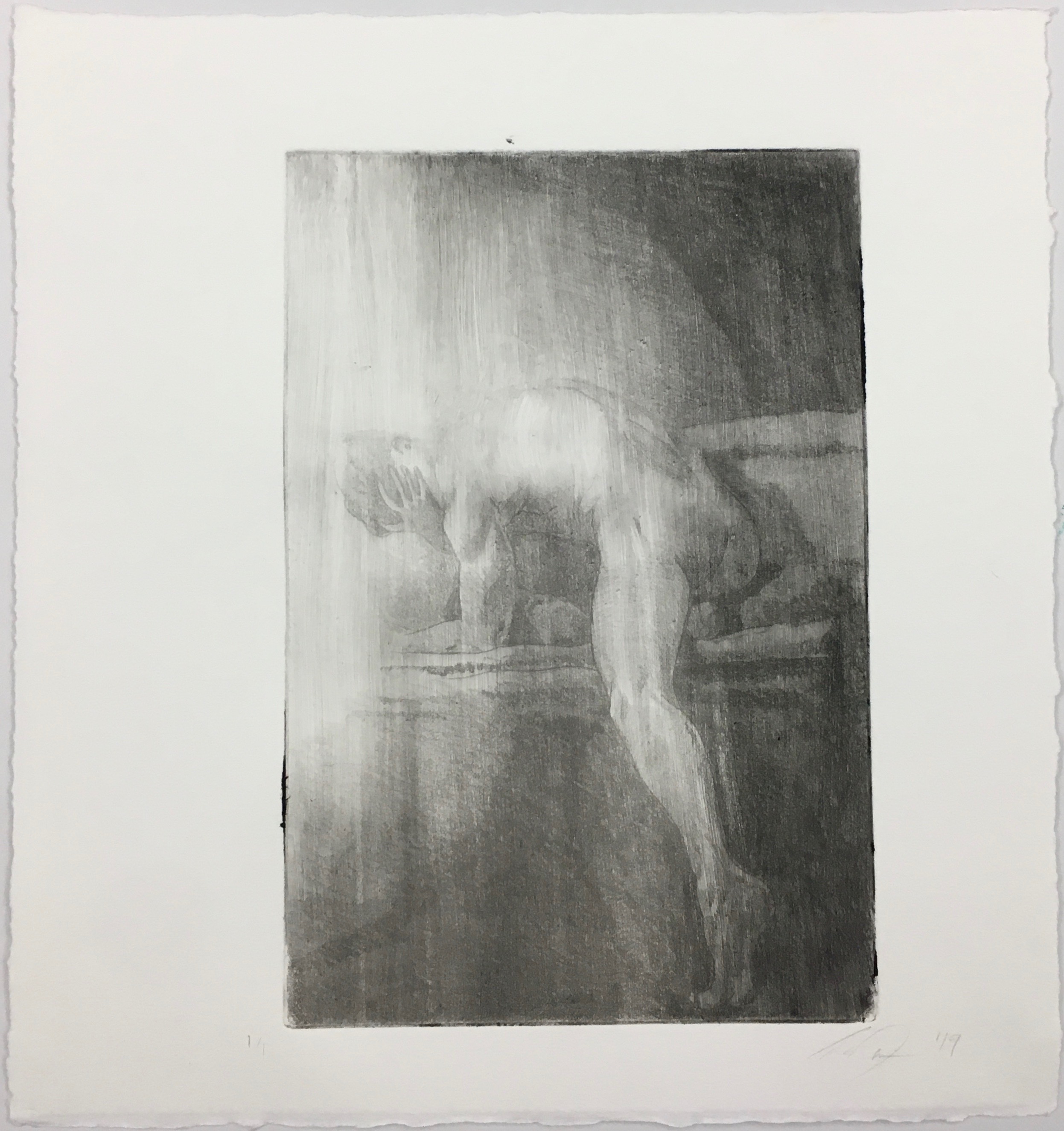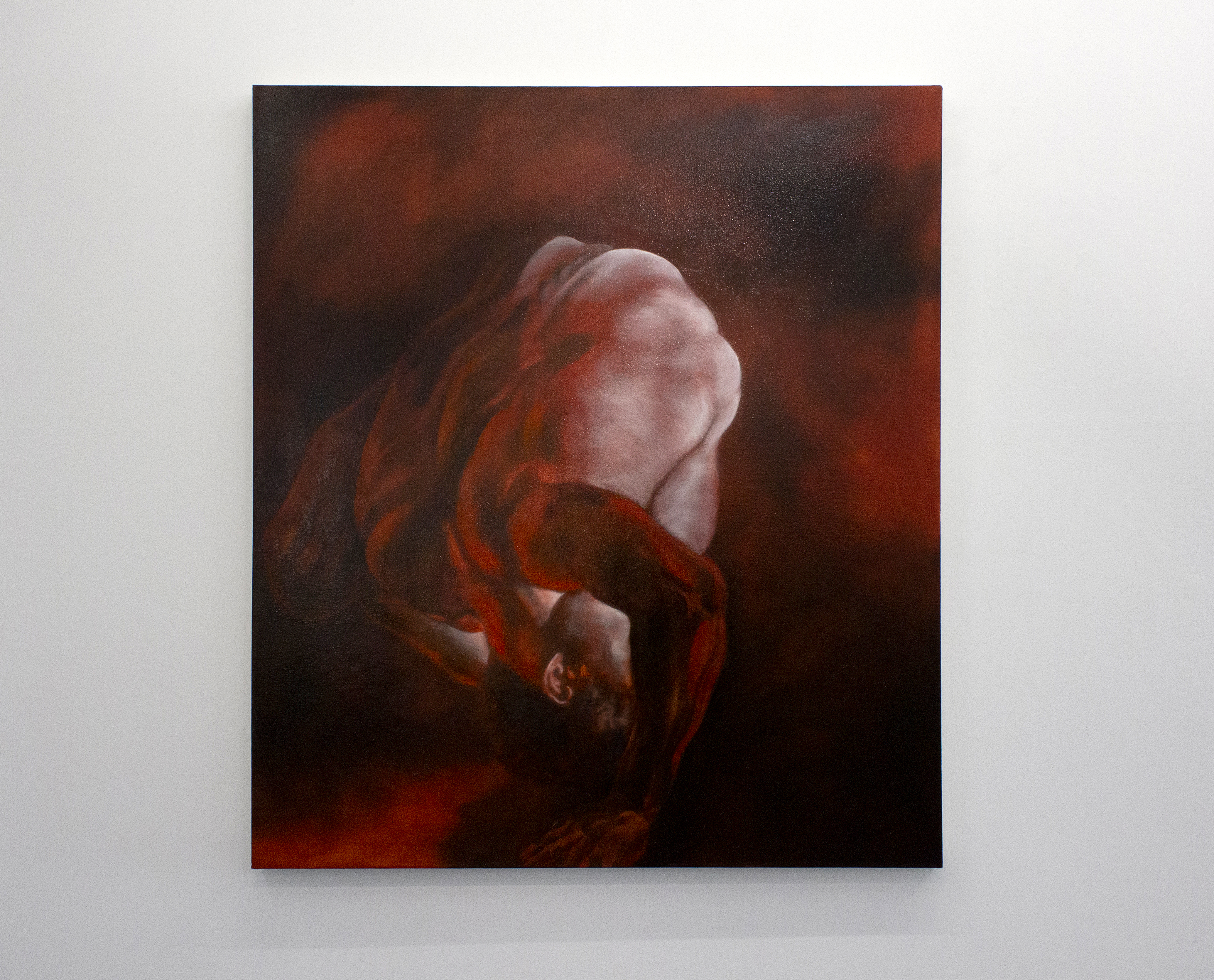How might our bodies—which are pushed and pulled
by the narrow precepts of normative ideologies everyday—assert what feels to each to be an honest and true
selfhood? Furthermore, how might bodies that have historically been agents and abetters of oppression begin
the work of radical reflection and defy demands to complicity? Put simply: how can we be authentic? Sincere?
And how might we, who have long benefitted from the systems that tell others how to appear, move, love, and
behave, shed the robes of power that have enabled us to blend in unquestioned?
A radical future sees the location of identity in a simultaneous and fluid sum of expressive possibilities.
Until then, a struggle against interpellation.
This struggle begins with oppressive bodies turning their violent gaze inward; to, as Baldwin writes,
face the tyranny of the mirror. Such is the most important work that majoritarian artists can do in the
21st century: we the lineage of artists who have heretofore enjoyed the boons of tacit authority in, and
unfettered access to, the art game.
This is the work of my paintings: to examine male fragility, vulnerability, and shame. Through self portraiture,
my body channels these invisible forces. It twists and writhes away from itself; bends and crumbles beneath
the weight of expectation. The web of ideology builds a lie. It’s dissolution into air will be my body’s
only respite. Only then can the psychocene begin.
— 2019
